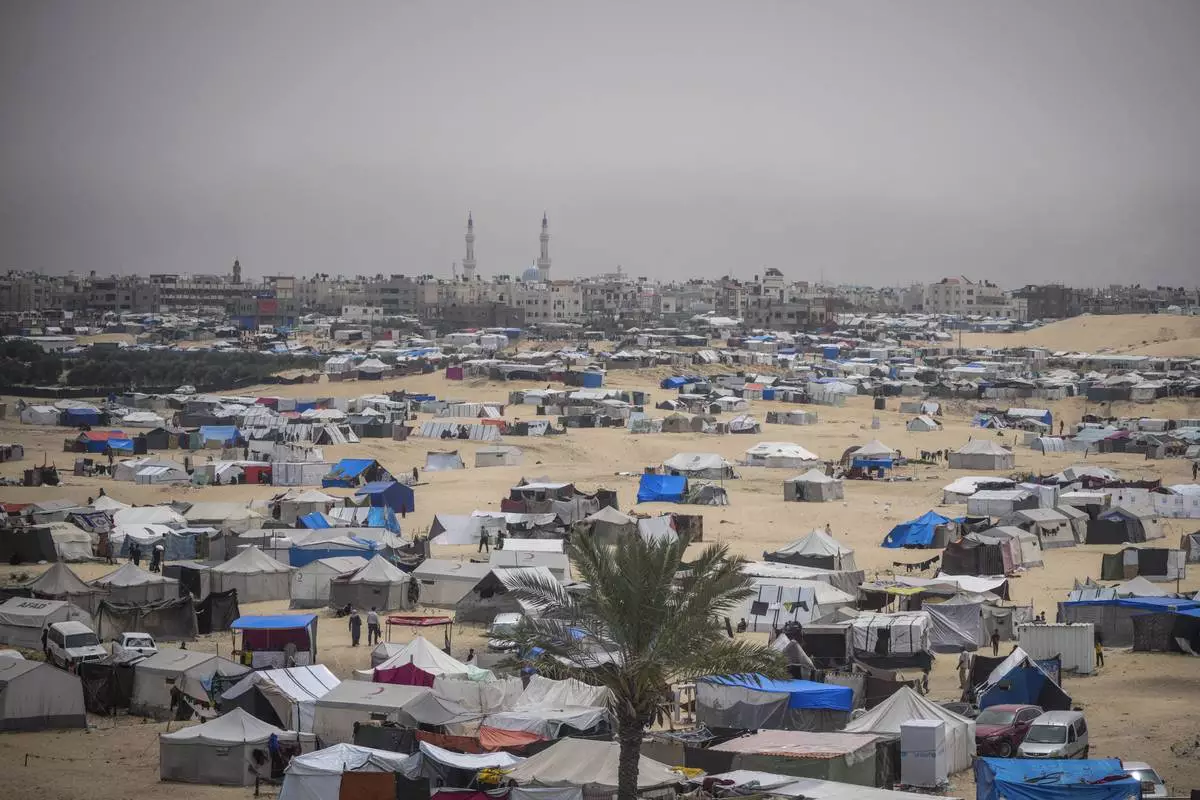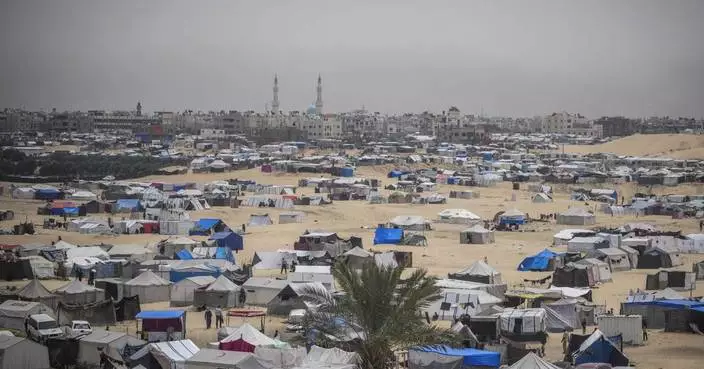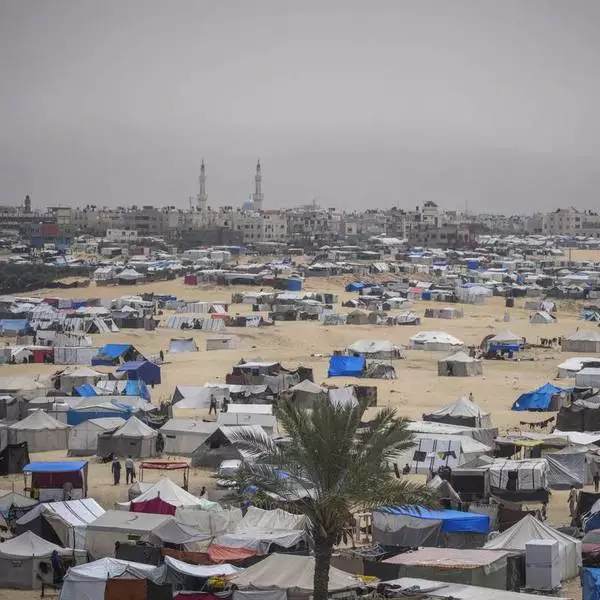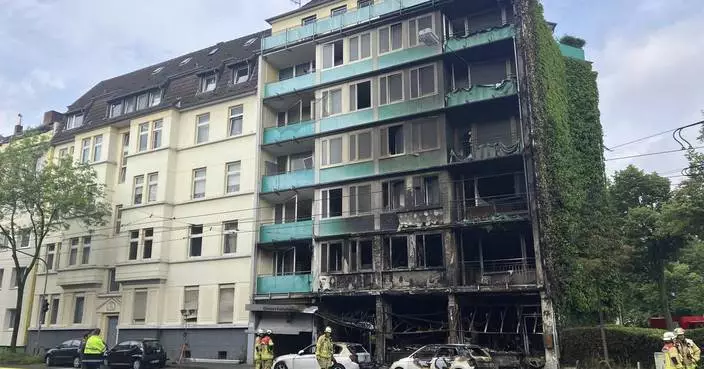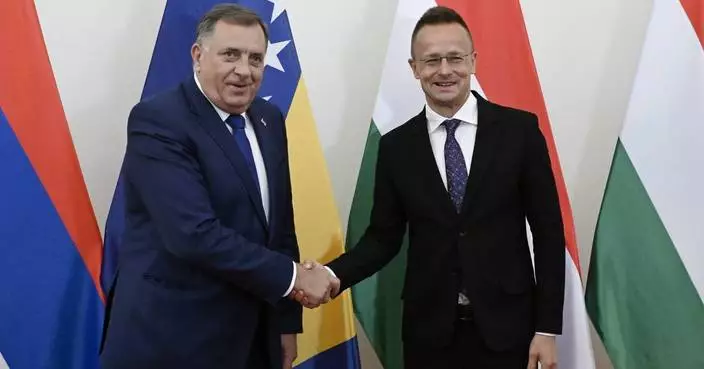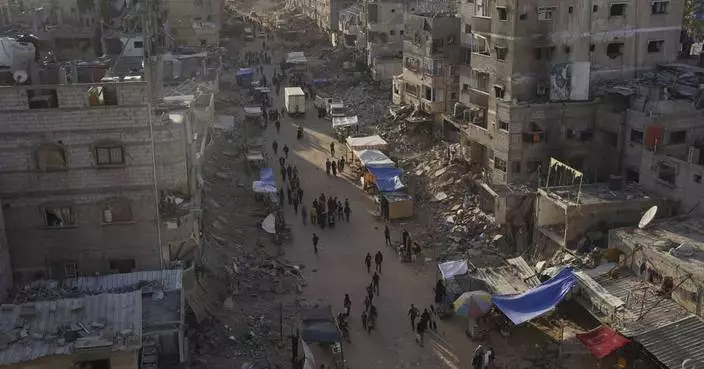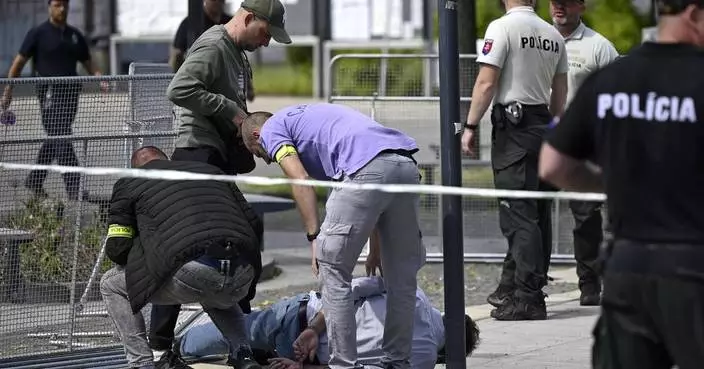LONDON (AP) — British and Irish officials met Monday as tensions rise over the movement of asylum seekers from the U.K. to neighboring Ireland and Ireland's proposal to send them back.
Irish premier Simon Harris said Sunday that Ireland will not "provide a loophole for anybody else’s migration challenges” after one of his ministers said more than 80% of asylum seekers entering Ireland now come across the land border from Northern Ireland, which is part of the U.K.
Irish officials on Tuesday are expected to discuss emergency legislation for a new policy to “return” the migrants to the U.K. British Prime Minister Rishi Sunak has said he was not interested in any such deal and that his government will decide who is allowed to enter.
“We’re not going to accept returns from the EU via Ireland when the EU doesn’t accept returns back to France, where illegal migrants are coming from," Sunak said Monday.
Sunak claims that the increase in migrants crossing into Ireland from the U.K. shows that his controversial Rwanda policy, which aims to send some asylum seekers arriving in Britain on a one-way trip to the African country, is working. Parliament passed the legislation last week.
The prime minister says it will deter risky English Channel crossings by people desperate to reach the U.K. Human rights activists and migrants’ groups call the policy unethical, inhumane and costly.
Sunak suggested over the weekend that the deterrent was “already having an impact because people are worried about coming here.”
Chris Heaton-Harris, the U.K.'s Northern Ireland secretary, and Irish Deputy Prime Minister Micheal Martin sought to play down any rift over the migrant issue at a news conference Monday.
The countries are jointly committed to “protect the common travel area from abuse,” Heaton-Harris said.
The Irish government's proposed legislation to return asylum seekers to the U.K. is a response to an Irish High Court ruling last week which found that Ireland's designation of the U.K. as a “safe third country” for asylum seekers is contrary to EU law.
Ireland’s Justice Minister Helen McEntee asserted last week that the number of asylum seekers crossing from Northern Ireland into Ireland was now “higher than 80%.” She did not provide exact figures.
Full AP coverage of migration: https://apnews.com/hub/migration

Northern Ireland Secretary Chris Heaton-Harris, left, and Tanaiste Micheal Martin hold a joint press conference during the British-Irish intergovernmental conference at 100 Parliament Street in London, Monday April 29, 2024. Established under Strand 3 of the Belfast (Good Friday) Agreement, the British-Irish Intergovernmental Conference is a bilateral forum, aiming to take place three times per year, to bring together the British and Irish Governments to promote cooperation at all levels on all matters of mutual interest within the competence of both Governments. (Yui Mok/PA via AP)
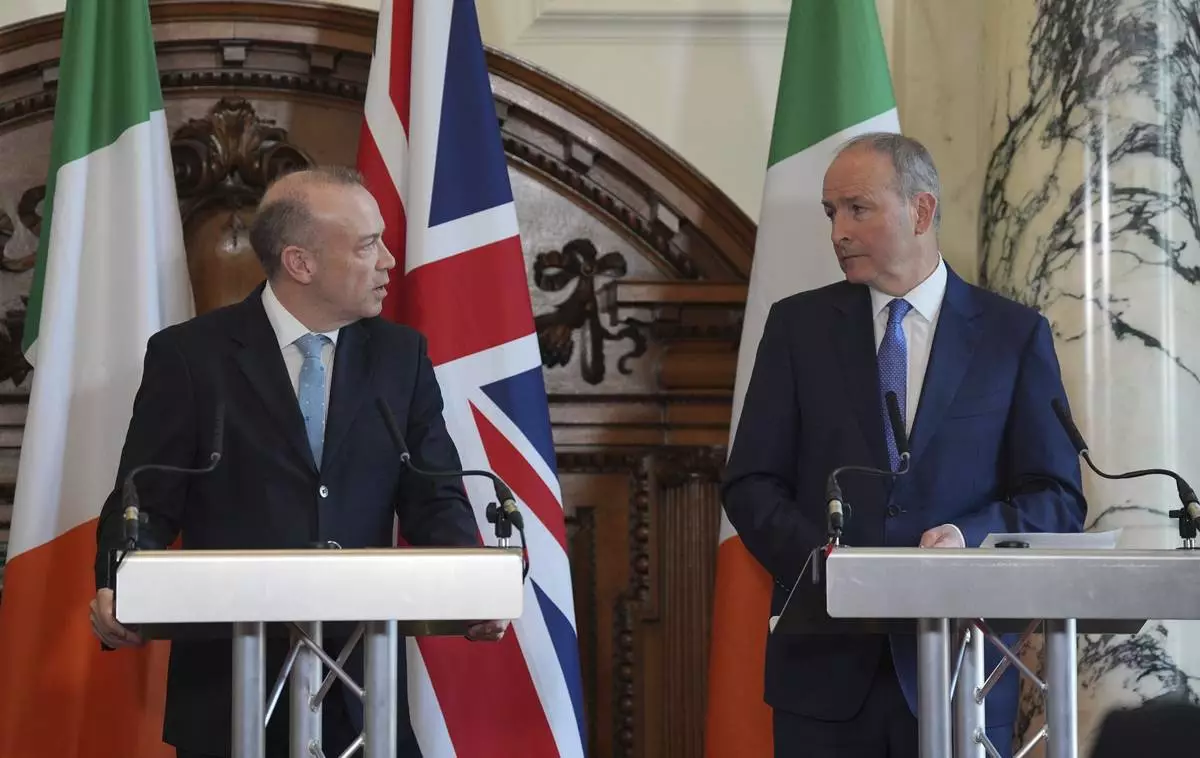
Northern Ireland Secretary Chris Heaton-Harris, left, and Tanaiste Micheal Martin hold a joint press conference during the British-Irish intergovernmental conference at 100 Parliament Street in London, Monday April 29, 2024. Established under Strand 3 of the Belfast (Good Friday) Agreement, the British-Irish Intergovernmental Conference is a bilateral forum, aiming to take place three times per year, to bring together the British and Irish Governments to promote cooperation at all levels on all matters of mutual interest within the competence of both Governments. (Yui Mok/PA via AP)
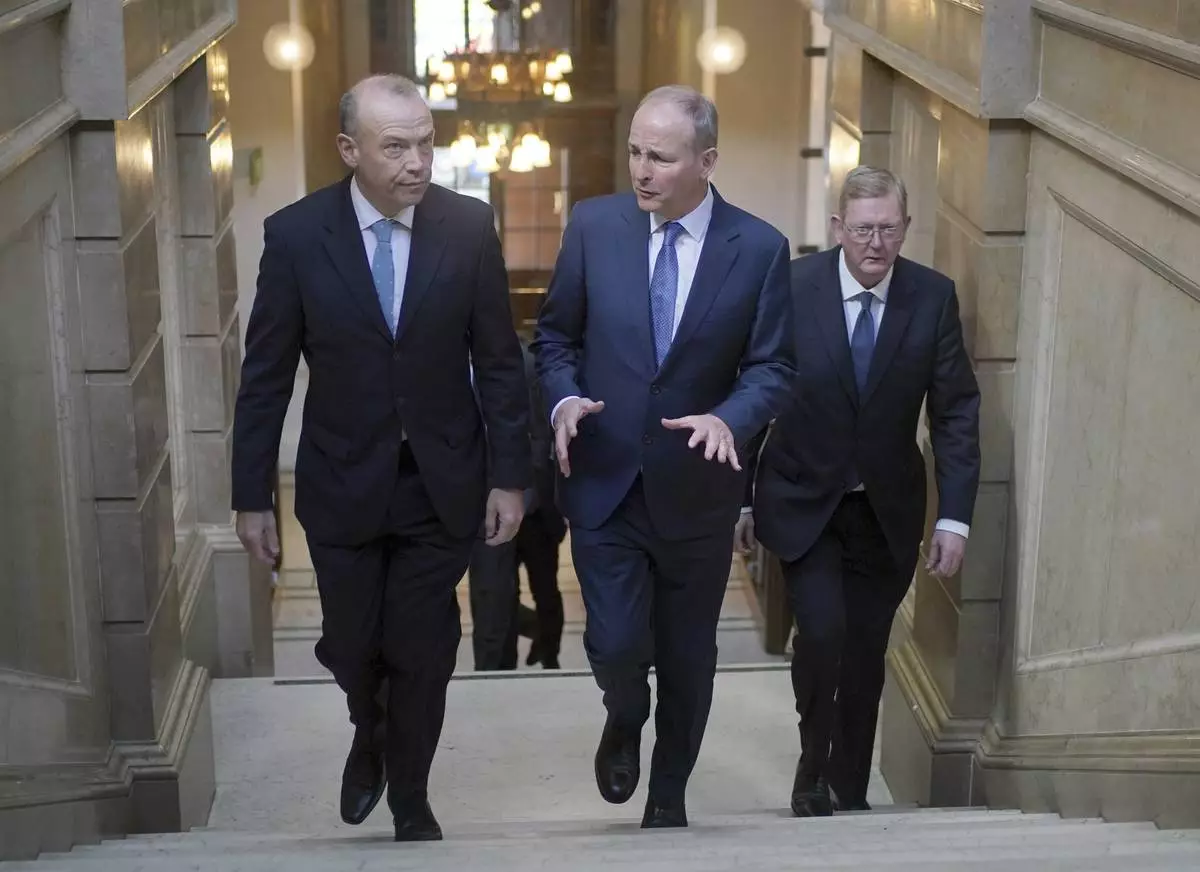
From left, Northern Ireland Secretary Chris Heaton-Harris, Tanaiste Micheal Martin, and Parliamentary Under-Secretary of State for Northern Ireland Lord Caine arrive for the British-Irish intergovernmental Conference presser, at 100 Parliament Street, in London, Monday April 29, 2024. (Yui Mok/Pool via AP)



